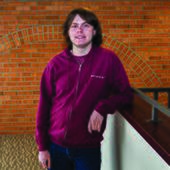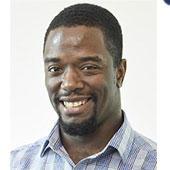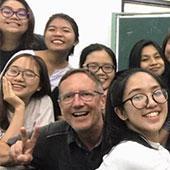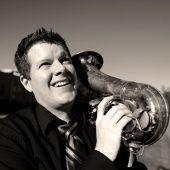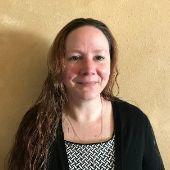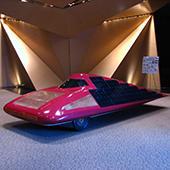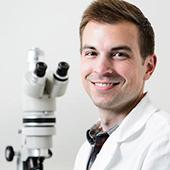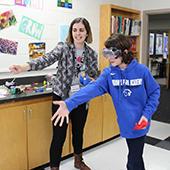- Board of Regents May meeting highlights.
- May 16 - Celebrating our graduates during virtual commencement.
- Features: Study tests revolutionary treatments for depression; Research at the bottom of the Earth; Woman strong.
- People: Marc Jenkins and Marc Hirschmann have been elected as members of the National Academy of Sciences; and more.
Board of Regents May meeting highlights
Discussions about the U of M’s financial position and challenges in the coming year were the focus of the May Board of Regents meeting. President Joan Gabel introduced her systemwide operating budget proposal for fiscal year 2021, which is predicated on a return to regular operations in time for the fall semester. The Board also discussed a draft systemwide strategic plan, reviewed the recommended annual capital improvement budget, and heard updates about the projected academic and enrollment impacts of COVID-19. See the news release for more details.
May 16 - Celebrating our graduates during virtual commencement
The University of Minnesota will honor undergraduate, graduate, and professional students during a virtual commencement at 11 a.m. (CDT) as part of a pre-recorded online celebration, “Hail to Thee.” Faculty and staff are encouraged to watch the ceremony and share messages of congratulations through social media using #HailtoThee2020. Though the University will not hold in-person commencement ceremonies in May, we are committed to recognizing graduates this fall based on guidance from state and federal health care experts. Visit z.umn.edu/commencement2020 for more information.
Study tests revolutionary treatments for depression
When Natalie Narvaez began her freshman year at the University of Minnesota, she had already been diagnosed with major depressive disorder and generalized anxiety disorder. So she jumped at the chance to help U of M researchers test a fresh approach to treatment: mindful breathing coupled with trans-cranial stimulation, in which an electric current is passed through the brain noninvasively. The mindful breathing practice may affect brain circuits and networks in ways that improve mental health.
Research at the bottom of the Earth
Sunil Kumar Mor returned to campus in early February from a trip to King George Island, Antarctica, after breaking new ground in molecular research with new collaborators. At the South Pole, he helped perform next-generation sequencing on samples of lactic acid bacteria as a part of an interdisciplinary project funded by the Chilean Antarctic Institute. His contributions to the project were among the first-ever attempts to sequence DNA in near-real time in Antarctica.
Woman strong
Why do some women show signs of cognitive decline as they age while others do not? A group of female philanthropists is helping U of M researchers, including Regents Professor Apostolos Georgopoulos, uncover the secrets of women’s aging brains through the Minnesota Women’s Healthy Aging Project.
People
Marc Jenkins and Marc Hirschmann have been elected as members of the National Academy of Sciences; the U of M has announced a $35 million gift from Minnesota Masonic Charities; U of M Duluth's Laura Palombi has received the 2020 President's Community-Engaged Scholar Award; Betty Seaquist is the recipient of the American Diabetes Association’s 2020 Albert Renold Award; Shelley Carthen Watson has received the 2020 YWCA Minneapolis Woman of Power Award; 2020 recipients of the President’s Student Leadership and Service Award, the Donald R. Zander Alumni Award, the James A. Johnson Scholarship Award, and the Mary A. McEvoy Award; U in the News features highlights of U faculty and staff cited in the media. People
CIDRAP provides tips for effective COVID-19 messaging
"Effective COVID-19 crisis communication," the second report in a multipart series titled "COVID-19: The CIDRAP Viewpoint," was published today by the Center for Infectious Disease Research and Policy (CIDRAP) at the University of Minnesota. The report provides government and public health leaders, communications professionals, and others responsible for COVID-19 messaging with six key principles of delivering messages to the public.
Health in All Matters: A Misinformation Pandemic
Episode 8 of the School of Public Health podcast Health in All Matters features a number of experts discussing misinformation about the COVID-19 pandemic. Misinformation and disinformation is causing confusion and, in some cases, death. The episode considers how to separate truth from lies and stop the spread of bad information.
Osterholm Update: Pandemic Wave Scenarios
In episode 7 of the Osterholm Update podcast, Mike Osterholm and host Chris Dall discuss future scenarios for COVID-19 based on previous pandemics, the shifting epidemiology of the disease and those it infects, and the possibility of college students returning to campus in the fall.
Perspectives: Connected to COVID-19
Faculty members Elizabeth Borer, Meggan Craft, Eric Seabloom, and others write that as you become antsy from the isolation of social distancing over the coming weeks, limiting the number of people you co-mingle with at a given time is not enough to truly slow the spread of this disease. Radically reducing the total number of people you contact through time will increase our community’s “degree of separation.”
Impact Medicine: The fight against COVID-19
In light of the COVID-19 pandemic, the U of M Medical School is highlighting individuals who have risen to the occasion to improve the situation in Minnesota and across the globe. Read their stories in a bi-annual series called "Impact Medicine," which highlights outstanding members of the Medical School community.
U of M faculty employs ECMO to support severe COVID-19 patients
Extracorporeal membrane oxygenation (ECMO) treatments primarily help patients with reversible acute injuries or illnesses who need cardiac or respiratory support. The ECMO device offers short-term support in order to enable the heart or lungs to recover while other interventions are put into place. Melissa Brunsvold and other faculty are now using the life-saving ECMO device to rescue COVID-19 patients with extreme respiratory failure.
New cystic fibrosis research may lead to improved treatments
Ryan Hunter, assistant professor for the Department of Microbiology and Immunology, and his colleagues noticed inconsistencies among how effective antibiotics are in treating patients with cystic fibrosis and began studying how to improve antibiotic efficacy.
Research finds saturated fats can lower change of cognitive function over time
Research conducted by Danni Li, associate professor in the Department of Laboratory Medicine and Pathology, which studied very long-chain saturated fatty acids, shows a positive association with lower change of cognitive function over the span of 20 years.
New system launches for service desk ticketing and requests
On May 18, the service desk ticketing, access, and service request system used by many University service desks (including Technology Help, some colleges, and administrative support helplines) will change. The new tool, TeamDynamix (TDX), leverages current best practices and positions the University to adopt industry innovations over the next three to five years. The tool has similar functionality, but the emails sent from TDX and request forms will have a different look. See example emails.
Summer opportunity for families with younger kids
Registration is now open for the Minnesota Writing Project's online writing workshops for kids entering grades 7-12, as well as kids entering grades 4-6. These weeklong, online workshops include five hour-long group sessions with a licensed teacher and daily emails with at least two hours of activities as well as reading or writing extension options. The cost of each workshop has been reduced to $125. Sibling discounts and need-based scholarships are available.
Good options for replacing ash trees
The emerald ash borer has left behind many dead ash trees across Minnesota. All Minnesota counties have at least one variety of ash, and ash is found on 4.3 million acres in the state. U of M Extension offers information on seven native tree species in parts of Minnesota that you can consider for replacing your ash.
Research Brief: Uncovering the potency and evasiveness of the COVID-19 virus
SARS-CoV-2, the virus that causes COVID-19, is highly infectious. Curiously, in many patients, it triggers poor immune responses, which prolongs illness. In a new study, U of M researchers identified the biochemical mechanism that may explain how the virus infects people efficiently while evading their immune responses. Additional recent Research Briefs include “People’s perception of media messages personalized in real-time,” “Ethics around businesses marketing unproven and unlicensed COVID-19 stem-cell-based ‘therapies,’” and “Engineering natural selection in microbes has implications for biofuel production, addressing antibiotic resistance.”
U of M featured virtual events
May 14 - Resolving Conflict During Trying Times
May 16 - Online Mindfulness Meditation Retreat
May 19 - The 2020 Presidential Election
May 20 - The Economics of COVID-19
May 20 - Web GIS 101 Online
May 21 - Community Health During COVID-19: Maintaining health through diet and activity during a pandemic
May 27 - Saving American Health Insurance in a Pandemic
Waste not
Growing up outside Kenyon, MN, Christopher Lang was on a computer whenever he wasn’t at school. The software engineering senior at the University of Minnesota Crookston credits a class for cultivating his interest in embedded systems—computer systems that function within larger mechanical or electrical systems. Using knowledge from the class, he created a campus-wide semi-automated recycling tracking system called Waste Watchers.
Third U of M–developed testing strategy may help trace spread of COVID-19
Glenn Simmons Jr., assistant professor in biomedical sciences at the Medical School’s Duluth campus, and colleague Richard Melvin are leading a study to monitor the prevalence of COVID-19 across Minnesota. They are testing samples from wastewater treatment plants. The study may help public health officials trace the spread of COVID-19, especially in areas where people have the virus but are asymptomatic and thus haven’t been tested.
Vietnam, a professor, and a pandemic
Communication associate professor John Hatcher taught at Ho Chi Minh University of Social Sciences and Humanities for three months as part of his Fulbright Visiting Scholar Program. Although his time in Vietnam was cut short by the coronavirus, the friendships he established with faculty and students have left him with the feeling that, one day, he’ll return again.
Campbell earns President's Award for Outstanding Service
Jonathan Campbell, assistant professor and director of jazz studies, earned the University of Minnesota President's Award for Outstanding Service. An active artist, educator, and community member, Campbell shares his love of jazz with students, colleagues, alumni, and others.
Goodnough earns Outstanding Service to University Senate Governance Recognition
Associate professor of chemistry Jennifer Goodnough has earned the Outstanding Service to University Senate Governance Recognition. Goodnough has been an active and dedicated participant in shared governance at the campus level for 15 years and systemwide for 10.
Health Care Research And Discovery Pathway
UMR's innovative degree programs and integrated curriculum provide students with a foundational undergraduate education. Discover how Jennifer Rumley navigated her time at Rochester and learn more about the Health Care Research and Discovery pathway.
Alumna puts knowledge to use during COVID-19 pandemic
UMR alumna Cassie Kersten is actively involved in the CDC’s Community Interventions Task Force. “To say that I’ve been able to have a role in both the state and federal responses to COVID-19, and that I’ve been an active participant in both, has been so meaningful,” she says of her experience.
Sun stoked
The University of Minnesota Solar Vehicle Project was founded by a group of undergraduate students in 1990. They competed in their first race with their first car, Aurora I, three years later. Since then, the team has built 13 solar vehicles and is one of the most decorated in the United States. See a photo gallery of the vehicles.
Transferable skills, dedicated mindset
The recent COVID-19 outbreak is yet another profound example of the strong ties between human and veterinary medicine. The pandemic illustrates the role of One Health—the relationship between humans, animals, and the environment—like few other diseases have before. College of Veterinary Medicine faculty, staff, and students are stepping in to volunteer their time and expertise to help the hospitals at the U of M and the local community save lives.
ICD outreach program educates youth about brain development
Graduate students in the Institute of Child Development (ICD) are educating young people about brain development and cognition through Growing Brains, a developmental neuroscience outreach program that aims to inspire children and adolescents to value science and to give them a sense of agency in their own development.
The invisible ones
The fact that some students lack stable housing captured public attention as the COVID-19 crisis forced colleges around the country to close dorms, leaving some students without a place to live. University staff began looking into housing instability on the Twin Cities campus in 2017. Here’s how generous and creative people are confronting this hidden problem—both on campus and in the community.
Experiencing campus through Minecraft
Before coronavirus-related closures, lockdowns, and social distancing, College of Science and Engineering junior Khang Lu joined 10 to 20 other University of Minnesota students last fall to create a virtual replica of campus as a joke. However, their creation of the Minecraft server “Goldycraft,” containing a still-growing, to-scale model of the Twin Cities Campus, has gained special meaning for students when classes moved online during spring semester.
Making discoveries easier
Students and researchers might not realize it, but they rely on the work of programmers, catalogers, shelving staff, the Google project team, and digitization staff to access materials and move their research forward. This behind-the-scenes work by Libraries staff helps users explore a vast information ecosystem.
Virtual open house: Road improvements for University Avenue and 4th Street
Hennepin County is making improvements to University Avenue and 4th Street SE near campus. You’re invited to share what enhancements you’d like to see to improve safety, transit, bicycle facilities, and traffic signals in the area through a virtual open house, ongoing through May 30.





